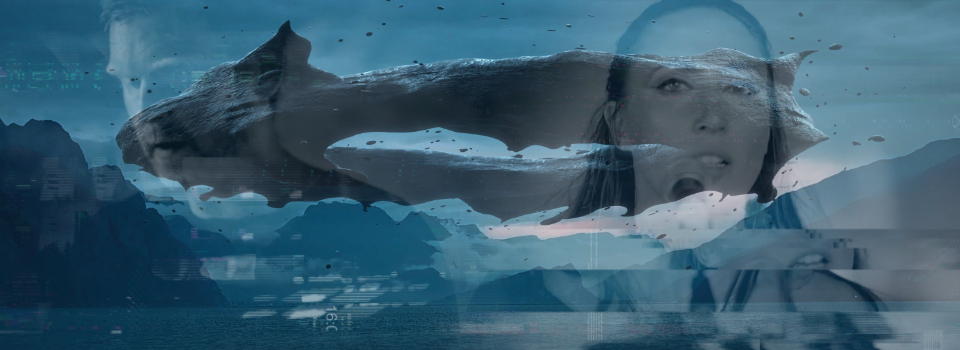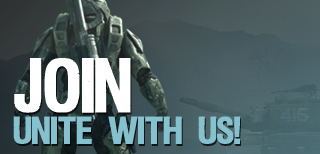You might not recognize their name. But odds are, youre familiar with their music. From Top Gear to SSX Tricky, The British electronic group HYBRID has established themselves as a sound of a gaming generation.
Having formed nearly 30 years ago, the group has licensed tracks for games like Need for Speed, Crackdown, Saints Row, and Quantum Theory. Theyve also composed music for games like Ghost Recon: Future Soldier and Drive Club. Beyond video games, theyve done a fair bit of work in various movies like Fast Five, X-men and Total Recall (2012). Their most recent album, Black Halo, released just last week.
We had the chance to sit down with Mike and Charlotte to talk about their history with video games, composing, their new album, and a Sulcata tortoise.
___
Mike: My name's Mike from HYBRID.
Charlotte: I'm Lottyie from HYBRID.
HYBRID was founded back in 1995, and that was a time when video games were still a relatively young and new industry. But by the mid to late 2000s, you couldn't find a racing game that didn't have one of your songs in it. That influence even remains today with your work on things like Driveclub. Did the group ever really anticipate becoming so involved in the video game industry to this degree?
Mike: Not really. I mean, I think we got an inkling that we might be a good fit when the music started getting licensed for a British TV show called Top Gear. Then we did something for [Lotus Challenge]. I think it was for Virgin Games, I mean way back in the day, about 2000 or something like that. So we did the score for one of the racing games.
And I think at the time there was a lovely period where in Hollywood and in TV and syncing the sound that a lot of people wanted for anything action packed was break beat, break beat and orchestra was just a golden kind of combination. So, you know, anything daring or dangerous, you'd have a Prodigy record. Anything that you needed lots of smoothing and commonplace kind of drone and camera shots, probably helicopter shots, at the time was more our kind of stuff. So it just fitted quite well.
I know we're very, very fortunate to do lots of work on various games. And as the technology got better for the sound for the games, rather than just being an MP3, being playing in the background, I would get more procedural and more tied to the gameplay. We were fortunate enough to experiment and work with a few companies on that end of it. And so game schools are quite rightly huge and draw right into the cream of the Hollywood comprises now, which is fabulous to see. So for many years it used to be the, you know, the kind of the younger cousin, the simplest version of it. But now I think it's probably even surpasses a lot of a lot of complexity for film. So, no, no, we absolutely adore the way that gaming and music sings with gaming. So, yes, big fans of that.
Is there a specific video game series or franchise that you would love to produce the soundtrack for if given the chance?
Mike: We're big fans of the Halo series, of course. The music is pretty peaceful. So I think the ones we've seen already have fantastic scores. Yeah.
Now our kids, who are 11 and seven, they discovered the joys of video gaming. So we quite often walk in to see how they're doing and kind of check and see what's going on. And then as you're walking out, you get hit with something. What are you.. What is this? oh, it's Minecraft. Oh, right. so you hear these brilliant bits and end up walking down the corridor and think oh let's check that out and see who's the composer.. oh it's them! So we hear the most amazing things.
I think a big revelation for us or for me certainly was hearing the score for No Man's Sky. Boy, that was really, really kind of.. It wasn't over the top, but it just fits so well with the ethos of the game and what was going on. And we were really inspired by that. We thought that was a beautiful choice. That was a really, really, really good.
Charlotte: Journey is really good, too.
Mike: Yes. Yeah, absolutely. We don't we don't get a chance to play quite as much as we'd like. But yeah, we do wrestle the PlayStation away from the kids sometimes.
HYBRID has arguably an even more impressive history with the film industry. Are there any noteworthy differences between making music for film compared to video games?
Charlotte: Yeah, a few differences, there's a few parallels in that on a film score, you have a temp track and emotions to expose or hide with the music of the characters. And they run in sort of. Pieces of sort of maybe two, two and a half minutes of whatever's going on in that particular scene.
Whereas when you do a game score, you do have several references and they're very, very detailed references. But also they have to be able to loop or they have to be able to change or continue depending on what's happening in the gameplay. So it's slightly more restricted because you have to do it in sections about 30 seconds or a minute or a loop of two minutes, depending on what's going on in the game or how it works.
But it's similar in the fact that you still got references, you still got a very strict, detailed set of notes on exactly where it's supposed to go, what it's supposed to do, exactly like at 15 seconds it does this. That tends at 30 seconds, it does this at 45 seconds. It does that. And then if the gameplay stops, it goes back to the first 15 seconds and builds. And it has moments, but it's even more specific I'd say than scoring.
Mike: Exactly. It's kind of interesting like Charlotte said in that it loops. So then you'd have one loop for various gameplay and then another one as it steps up, another one when the shit hits the fan and then another one when you are winning. And how the game engines then put you perfectly looped them together is fascinating.
And we've seen a good couple times, I think Ghost Recon: Future Soldier was one where was the first time we actually hear the work that we submitted kind of returned and how we actually put it together. And it's amazing, I think is a fascinating process and I think it's a different headspace to work.
Charlotte: Yeah. And if it was a completely contrasting experience with doing Ghost Recon and doing Driveclub. Because with Driveclub, you're writing solid tracks for the racing experience, whereas with Future Soldier, there's obviously different environments, different places to go, different unique things that are going on at each stage of the games that we'd be doing different kinds of world music from all over the place. So it'd be, you know, they wanted something that was a battle in a certain place in the world. And they want something that was like an emotional bit in another place in the world. And it was, you know, you got to experiment a lot with a lot of different instruments on that one. And Driveclub was incredibly specific.
Mike: That was on the replays. Yeah, because they spent so much time on Driveclub working on the amazing cockpit sounds and the engine noises.
Charlotte: They'd been so specific about recording the miniscule noises of every single car that was featured on it, just from turning on the ignition to the way the clutch pedal sounds. The way that if you wanted to open up the glove box, the way that sounded, everything, every single squeak.
Mike: There was even the speed of pulling the handbrake out. Whether you just kind of just slowly or, you know. The detail was crazy for about 16 months once recording. But yeah, they're all kind of different disciplines, similar to scoring in that you've got is a start point and an end point. But beyond that it's quite a different beast to tackle.
It sounds a lot more in depth than most people may expect.
Charlotte: Yeah, it's got to you've got to get every single every squeak and fart right, basically.
Mike: It's a good challenge. And as a composer as well, the challenge for us is how can we get the mood right within those confines. So, you know, on a score, you can push it in a certain way. On a track, obviously, if it's just a record and there's no picture and there's nobody else kind of asking you to write in a certain way that it's the other end of the scale, which is totally terrifying, sometimes. We have a completely open page and the only notes are what we talk about with ourselves. But it's good. It's good. It's a good discipline. It's nice that you've got you've got a framework to work within. To get that right is really rewarding, very satisfying, when it all falls into place.
If I may digress slightly. You just released a new album called Black Halo, and it had a very sci-fi kind of feeling to it. Can you tell me more about the overall vision for that album and its sound?
Charlotte: Well, we started off with the title first, which was unusual for us because we usually end up sitting in a coffee shop just 10 minutes before mastering, trying to figure out exactly what we're going to call it. Because everything has to be titled and stamped and it has to be set in stone. But this time we actually came up with Black Halo first.
We basically made a story from that. We wanted it to be like a concept album. So you've got the two bookends of Flashpoint and Sky Full of Diamonds. And then we wanted it to sort of take you on an hour-long journey from start to finish. And we're not religious, but that we wanted the title to represent a kind of spirituality. So if your internal struggles and getting over those internal struggles and those things. The halo is obviously quite a religious symbol, but in the fact that we wanted it to be spiritual, we wanted it to represent the fact that in religion there's a clear path to being perfect and good and right.
But in real life, it's not so black and white and there's always an internal struggle making you wanting to do better. Regrets that you have been having to cope with those regrets, carry them with you. Especially because of the pandemic and everything, everyone, no matter what scale, people have been having the most terrible time with all this and losing people and everything. And it's how to deal with these massive things that come up in life and how to get over them and how you carry them with you. But you still manage to get through it.
Mike: Without necessarily writing directly about the effects of the pandemic.
Charlotte: It wasn't about the pandemic. It just sort of highlighted those, you know, terrible things that you have to go through in life. Things spring up that you don't expect, whether it be on a personal level or global level, it is equally difficult to deal with.
Mike: So in that respect, I think those heavier concepts weighs in on the chance on some sympathy for the album, which we're really pleased about. But it's meant to be cathartic and it's meant to be something...
Charlotte: It's a journey.
Mike: Yes. Something you can actually take something from. Some people have a relatively tough time. And some people are having an awful time. More than anything, it's just those glorious themes that universally mean a lot to everybody. There's some very deep things on the songs of mortality and kind of hope and redemption and all that glorious stuff that makes them feel.
Charlotte: Yeah. And if anything, the album is not about the pandemic in any way, shape or form, but it's probably focused on the intent of the lyrics and the meaning of the album because of sort of the environment we've been in.
That sounds rather deep.
Mike: But all wrapped up with some really shiny fuck-off breaks.
Charlotte: Bangers!
Mike: We like a bit of misdirection. So you might have quite a really heavy lyrical content, something like Lost Angels is actually really heavy. That's pretty much all about mortality. And that was, Charlotte wrote that about her granddad. However, in the cloak that we've read in, it feels quite different. And we really enjoy seeing people's reaction, which we've had over this weekend, which has been lovely, seeing what people actually kind of make of it. So without it being so ambiguous, it could be anything.
Charlotte: Every song mean something, and it's written for a specific reason. But we wanted to make it so that the listener would have something mean, something for them specifically. So it wouldn't be a generalized this is what it means, and that's that. It's supposed to mean something specific for everybody who listens to it, and hopefully sort of brings home some sort of truths and hardships that people have had and had to overcome.
Mike: It's nice to get to the end of an album and feel like you've actually got somewhere with it. That's what we strive for us to do, is to engage people. So they've got a listening experience, if you like.
Now reeling it back a bit towards the game concepts again, do you expect to see any of your recent song licensed into an upcoming game?
Charlotte: At this stage, we don't really know because we usually get in contact with people with regard to that sort of syncing in and that sort of thing after the album out. So it's a bit too early to say, but hopefully.
Mike: we find generally things get used about three or six months later. I think an album has to have time to percolate down to people. It doesn't go everywhere unless youre kind of on a major label. So, yeah, I mean, hopefully so. Hopefully the songs are strong enough to actually stand up. So we've been very fortunate in the past. So yeah, hopefully. So we'll see what happens next.
What would you guess, from that album, would be the most popular song to get licensed around?
Mike: Um, I would have thought that Sky Full of Diamonds should definitely end up on a sports game somewhere. Maybe Nails as well. I can definitely see a Match of the Day with the central section there.
Charlotte: Yeah, I mean, it's difficult licensing miserable songs. We certainly haven't written it to exploit ourselves in that way.
Mike: I wouldn't call it miserable.
Charlotte: No! It's just dark, it's bleak, you know?
Mike: They're not average pop songs, but I think Sky Full of Diamonds, there's a very strong chance that ending up on the Madden or somewhere along those lines because it's just custom-built for action replays.
I have one final question, something a little more casual. Outside of video games, what are some hobbies that you guys like to enjoy in your free time?
Charlotte: [Laughs] This is funny. So we live on a farm. Well, I should say: it's a farm, but it doesn't make any money. So basically it's a petting zoo. And we have sort of in the rough region of about 60 animals and... [both laugh] So we have... I always forget stuff, but we have donkeys, alpacas, sheep, pigs, horses, pygmy goats, ducks, geese, chickens. We have these mini sort of ostrich things called rheas at the moment that are babies and we have just ducks, we have a parrot, we have a tortoise. What else do we have?
Mike: There's dogs and cats.
Charlotte: Yeah, we've got four dogs, five cats and four horses and stuff. Stuff and nonsense. But yeah, so that keeps us kind of busy.
I can absolutely imagine.
Charlotte: I like the chaos because when you have a bad day in the studio sitting there thinking that you're rubbish and you can't do anything and it's just "everything's going wrong!" You just have to step outside the studio and realize that everything outside the studio is way more chaotic than your brain.
It's great. And Mike does a lot of stuff with visuals and camera work as well. So he keeps himself busy with investigating new ways of doing CGI. And he's got a drone that he likes to fly.
Mike: I've been fascinated with cameras and lenses and ways of shooting in different vantage points for shooting two years since we started doing our own videos in 2010. So it's kind of grown from a hobby into something that we actually use professionally, which is nice. So I handle the visuals for live and things like that. But everything for me is basically technology bites. If there's a CPU and a couple of LEDs, I'm that boy. So I get to watch the ensuing madness of Charlotte chasing after. alpacas and donkeys, chasing horses.
Charlotte: And then late at night when I'm tucked up in bed, Michael tells me about all of the memory in his camera and I fall straight to sleep! [Laughs]
Mike: There's nothing at getting Charlotte to sleep than telling her about a frame rate and how you need to interpolated it when you need to stretch a bit of video. [Charlotte laughs] And Charlotte can tell me the innermost workings of a horse's bladder, digestive system, which gets me asleep equally quickly. So sleep is not a problem with this house.
Charlotte: whiling away the hours!
Mike: I'm sorry, that's probably more than you actually needed.
Not at all, that sounds like a great way to spend time.
Charlotte: It's madness, I'll tell you that.
___
After the call, I asked for more details about the tortoise (a personal interest of mine) and they explained that its a Sulcata Tortoise that's only a couple of years old and is still rather small.
HYBRID currently consists of Mike and Charlotte Truman. Live performances include Stu Morgan on guitar, bass and vocals, and Simon Hanson with drums, programming. Their new album, Black Halo, is available now. More information on that can be found on their official website.

 by
by 


Comments
Comment on this Article in our ForumMore GamerzUnite News
Are We Being Controlled in a PC Game by Aliens?
New UFO Film proposes we might!
Explore an Eerie Archipelago in Dredge
A fishing adventure gone bad...
Metasport Arena and Burrst Open the NIL Door for College and High School Gamers
The future looks bright...
Automation Goes Too Far in The Last Worker
A bleak future for anyone looking for a job...
Alien Infestation takes over in From Space
Liberate the Earth in this fun new action-shooter...
The Ascent Cyber Heist DLC takes Cyberpunk Heists to a New Level
New Missions, Side Quests and more...